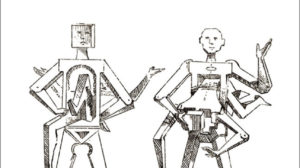David Lane è l’unico che conosco nel gruppo degli autori del nuovo libro: “Complexity Perspectives in Innovation and Social Change”. David Lane lavora al Department of Social, Cognitive and Quantitative Sciences, University of Modena and Reggio Emilia.
Il libro è notevolissimo. In sintesi, dicono gli autori, “Two conclusions stand out from the project. Firstly that innovation and invention have, in a sense, been among the stepchildren of modern research, whether in the social sciences or in the humanities, and secondly that the role of innovation in urban dynamics is much more important than is generally acknowledged”.
In sostanza, gli autori raccontano il processo dell’innovazione sulla base della teoria della complessità. Questo consente di correggere la tradizionale modalità degli studiosi dell’innvazione: quella di cercare di comprendere l’innovazione a posteriori. Per comprenderla prima che sia rinosciuta come innovazione occorre una teoria che la veda nel suo farsi, nell’ecosistema che la favorisce.
“It is in our opinion surprising that the scientific community has so little understanding of the process of invention and innovation itself. Generally, the world reacts a posteriori to innovations once they have been introduced. Could we not attempt to shift our stance from a re-active to a pro-active one, and come to understand and guide the process of invention and innovation itself? That would put us in control rather than dealing with things after they have gotten out of hand, and it would potentially allow us to accelerate the innovative process in those domains in which that is most needed, and maybe slow it in others”.
“What has thus far held back our understanding of the process of invention and innovation? Our tentative working hypothesis is that that lack of understanding is directly related to the fact that the majority of the scientific community has looked at invention and innovation using a positivist, scientific perspective. In essence, invention and innovation have mainly been studied ‘a posteriori’. From such a perspective, creation cannot be described or understood. Hence, we have left ‘invention’ completely to one side in innovation studies, relegating it to the domain of ‘personal creativity’, and we have focused uniquely on innovation, i.e. on the ways in which an invention is adopted and spreads throughout a population”.
La città è la rete sociale fondamentale che favorisce l’innovazione. Perché è il luogo nel quale l’evoluzione umana si svolge contemporaneamente come specie naturale e culturale.
Ne consegue un approccio che promette molte conclusioni importanti. “From biology to society, specifies how a new kind of organisation has emerged with the historical apparition of human societies. Although Homo sapiens is a biological species, whose individual elements do not in themselves differ from any other animal species in their biological organisation, and although social systems do share some properties with animal social organisations, two main radically new and distinctive features were created through the process that led to human social organisation. The first one is a self- monitored, directed (intentional) mode of social change. We shall demonstrate that this new kind of evolutionary driver is the result of the integration of new functionalities in social structures due to cultural processes. The second distinctive feature that is essential to our approach of social systems is that it is comprehensive: to shift from a static description of social structures to a dynamic one, we need to consider a variety of social interactions that are usually separated in disciplinary explanations of social systems. The modifications in social organisation that are directed at monitoring social changes, and that produce emergent patterns instantiated in organisations do affect a social system in every aspect and at all its levels of organisation.We describe how function, structure and process are affecting each other, and we build a dynamic, interactionist interpretation of the evolution of social systems”.
“In this attempt, it is important to determine which ingredients are necessary for developing a theory of human social innovation that is both general, and precise enough to be relevant. We believe that complexity theories are the necessary framework for developing a modern interpretation of change in complex systems. However, we question two principles that are part of the application of this theoretical approach to physical and biological systems. These are, firstly, the search for invariance and universality in processes. We demonstrate that human social change cannot be described in Darwinian terms, because something new has appeared, i.c. the fact that human societies are inherently responsible for their own innovation. This then leads us to question the applicability of the Darwinian approach of biological evolution to human social evolution”.






Luca, ti consiglio la visione di questo TED su “Charter Cities”, è molto in tema con quanto dici.
http://www.ted.com/talks/lang/eng/paul_romer.html
“La città è la rete sociale fondamentale che favorisce l’innovazione. Perché è il luogo nel quale l’evoluzione umana si svolge contemporaneamente come specie naturale e culturale.”
Non potrei essere piu’ d’accordo.
Tant’e’ che ho dedicato un blog a questo tema.